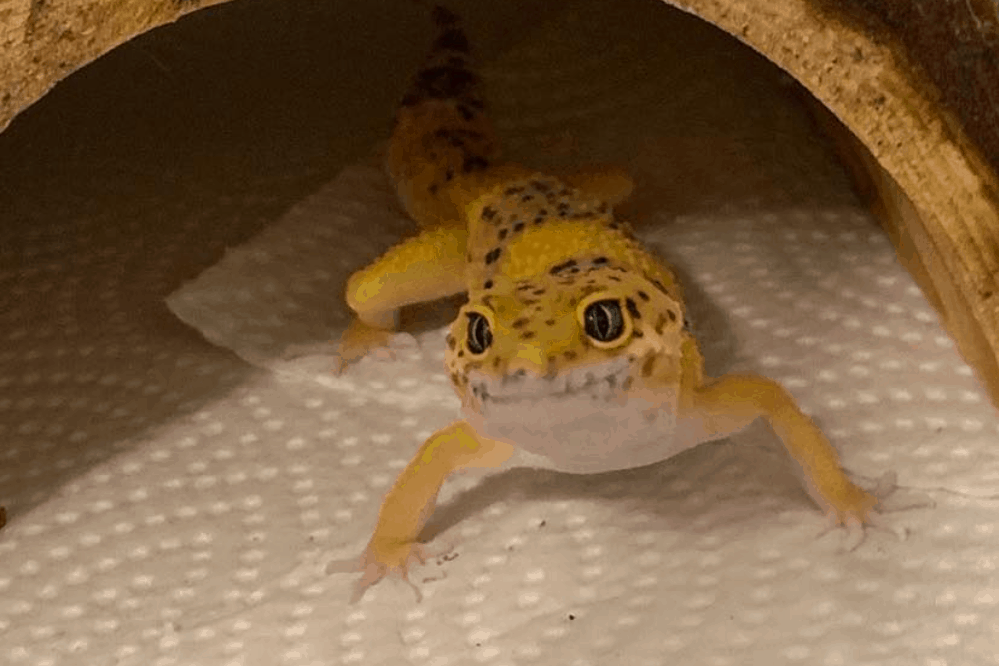Leopard geckos, like humans, use their vocalisations to communicate their thoughts and feelings. Even if you can hear your leopard gecko, you may not be able to tell just how they are feeling. In the end, we don’t understand a word they say.
If you’re curious about what the leopard geckos are thinking, there are a few things you may check for to get a sense of what they’re thinking. These four leopard gecko noises and their meanings will be discussed in detail. Now let’s check out the Leopard Gecko Noises and their meanings.
Table of Contents
Leopard Geckos Making Screaming Noises
Is there anything wrong with my leopard gecko? You don’t have to be alarmed if your Leo starts yelling. Leopard geckos make a shrieking sound when they’re excited. When the leopard gecko is yelping, it’s trying to protect itself. When you annoy your leos, they yell and act like they’re “attacking” you.
Have you noticed? If this is the case, the animal is just defending itself. People have also found that newborn leopard geckos cry more often than adult leopard geckos. For starters, baby leopard geckos are unfamiliar with people. All animals protect themselves if they notice a “large animal” in front of them.
The leopard gecko will become more comfortable around you and its immediate surroundings as it grows older. Depending on how you measure it, they won’t scream as much or at all. So, if you discover that the leopard geckos are squeaking, you should take action. Make sure any other animals do not surround him.
Leopard Gecko Barking
In addition to clicking, your gecko’s barking may indicate stress. A dog’s bark sounds like a click, but it’s a little hoarser than that. Unlike clicking, barking is a more severe reaction and is less prevalent than clicking. Not only do geckos bark once they are unhappy or agitated, but they also do so when they believe they are in immediate danger.
Leopard Gecko Clicking
Although it’s not as optimistic, leopard geckos also make a clicking sound. Leopard geckos are known for clicking when they are irritated, angry, or agitated. Because animals have not yet become habituated to people, juvenile geckos click more often than adult ones.
While your leopard gecko is in your hands, it is likely to click as a form of communication. Always keep in mind that this is a tense noise. Allow the gecko some peace by ceasing all other activities as soon as you hear this noise.
Leopard Gecko Chirping
Maternal calls and territorial delineation are common uses of leopard gecko chirps. You may also hear chirping sounds if they are mistreated. Your first step should be to learn how to handle and accustom your leopard gecko securely. Avoid putting your hand on their head, as this will elicit a chirp from them out of fear and protection.
Additionally, a Leopard Gecko may chirp as they adjust to its new surroundings. They need about two weeks to adjust to their new surroundings. Your Leopard Gecko’s chirping may be due to hunger. When you hear noises like these, try giving them some food to see if it helps.
Leopard Gecko Noises – I hope now you have got all the details!!
